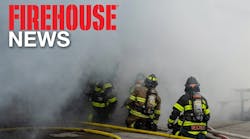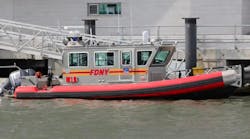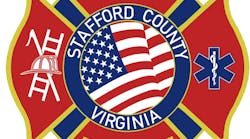Washington, DC can be a tough place to do government business these days. It has been widely reported through various media outlets that the unwillingness and/or inability of our two major parties to find common ground on significant issues facing our nation is quite frustrating to the general public. Whether you access the news online, read it in newspapers, listen to it on the radio or watch it on TV, the headlines continually highlight our country's overall frustration with elected officials at all levels of government who the public feels are not representing or acting on what is best for the United States of America. It is said that our form of government cannot function effectively without the willingness to compromise on critical issues, and this is not a new concept.
To find a great example of the importance of compromise in our democracy, all we have to do is go back to the signing of the U.S. Constitution in 1787. Records recount the difficulties the framers of the Constitution had finding agreement on how the process of representation of the people would function. To reach a decision about whether it should be a national system or a federal system, a compromise was formed that resulted in a process that was a little of both. This significant compromise created the structure of a Senate made up of equal representation from each state and a House of Representatives whose membership would be based on population served in each state. The "Great Compromise," as it is known, passed by only a single vote. You have to wonder whether our leaders today could have crafted such a solution, let alone passed it.
You might be contemplating how all of this relates to fire service politics. Just like major national issues that are not being addressed by our elected officials, several important fire service-related pieces of legislation are still awaiting action in the Senate, the House or both.
The following measures listed on the Congressional Fire Services Institute (CFSI) website, www.cfsi.org, are examples of legislation that if not passed in the current Congress will have to be reintroduced in the next Congress:
• The Fire Grants Reauthorization Act would reauthorize the Assistance to Firefighters (FIRE) Grant Program and SAFER Grant Program through Fiscal Year 2014.
• The Fire Sprinkler Incentive Act would classify the retrofit of automatic fire sprinkler systems in commercial properties as five-year property for purposes of tax depreciation.
• The Public Safety Employer-Employee Cooperation Act would provide collective bargaining rights for public safety officers employed by states or local governments.
• The Federal Fire Fighters Fairness Act would amend federal law to provide that, in the case of an employee in fire protection activities:
Heart disease, lung disease, specified cancers and infectious diseases shall be presumed to be proximately caused by the employee's employment.
The disability or death of an employee in fire protection activities due to such a disease shall be presumed to result from personal injury sustained while in the performance of such employee's duty.
Such presumptions may be rebutted by a preponderance of the evidence.
• The Volunteer Fire and Emergency Services Job Protection Act would protect the employment status of volunteer emergency services personnel responding to a Presidentially declared national disaster for up to 14 days per calendar year.
• The Volunteer Responder Incentive Protection Reauthorization Act would amend Internal Revenue Code provisions allowing a tax exclusion for benefits paid to volunteer firefighters and emergency medical providers by states and local government by increasing the amounts of benefits excludable and extending such tax exclusion through 2013.
• The Campus Fire Safety Education Act would establish a grant program at the Department of Education to make awards to institutes of higher education for fire prevention and education programs.
Other important pending pieces of fire service-related legislation include the Honorable Stephanie Tubbs Jones College Fire Prevention Act; Volunteer Emergency Services Recruitment and Retention Act; Protect Children from Dangerous Lighters Act; and Fallen Heroes Flag Act. Descriptions of these pending acts, as well as four that have been approved by this Congress are also available at www.cfsi.org
If our forefathers were willing to work together and compromise on major decisions that enabled them to approve our Constitution, we shouldn't expect anything less from our elected officials today. We as a nation face daunting hurdles — the economy, jobs, health care, entitlement programs, education, war and several other major challenges — including those issues that impact our nation's fire and emergency services. If both parties continue to take politically myopic approaches in addressing the major issues of the day, Washington will remain a quagmire where none of the nation's challenges will be addressed.
As many attribute a lot of the backlog to the inability and/or unwillingness of our political parties to find compromise in their policy development and decision-making processes, perhaps we should refer our current leaders back to 1787 and the challenges the framers overcame in crafting very difficult decisions relating to something as critical as the Constitution. Doing so might help with solving a lot of problems, including those facing the fire service.
DENNIS COMPTON, a Firehouse® contributing editor, is a well-known speaker and the author of several books, including his newest offering titled Progressive Leadership Principles, Concepts and Tools. He has also authored the three-part series of books titled When in Doubt, Lead, the book Mental Aspects of Performance for Firefighters and Fire Officers, as well as many articles, chapters and other publications. Compton was the fire chief in Mesa, AZ, for five years and as assistant fire chief in Phoenix, AZ, where he served for 27 years. Compton is the past chair of the Executive Board of the International Fire Service Training Association (IFSTA) and past chair of the Congressional Fire Services Institute's National Advisory Committee. He is also chairman of the National Fallen Firefighters Foundation Board of Directors and the chairman of the Home Safety Council Board of Directors.





